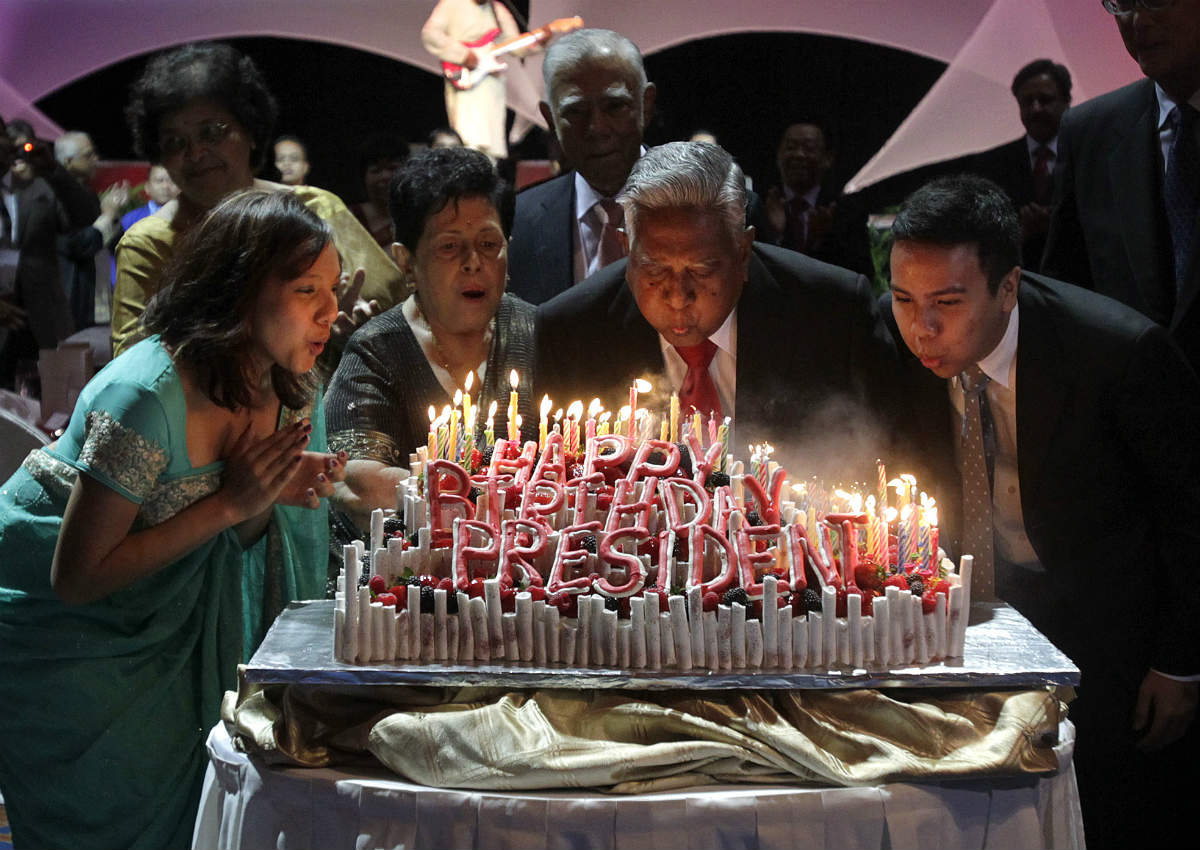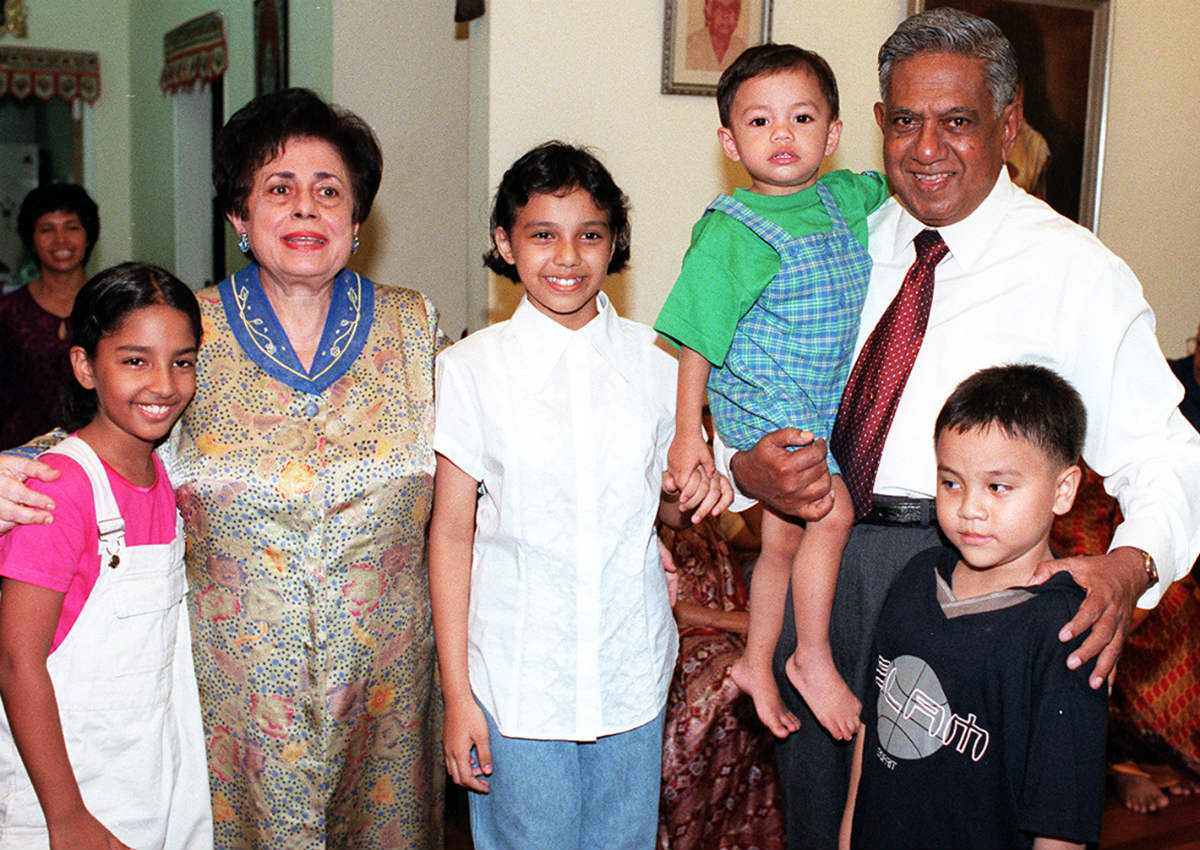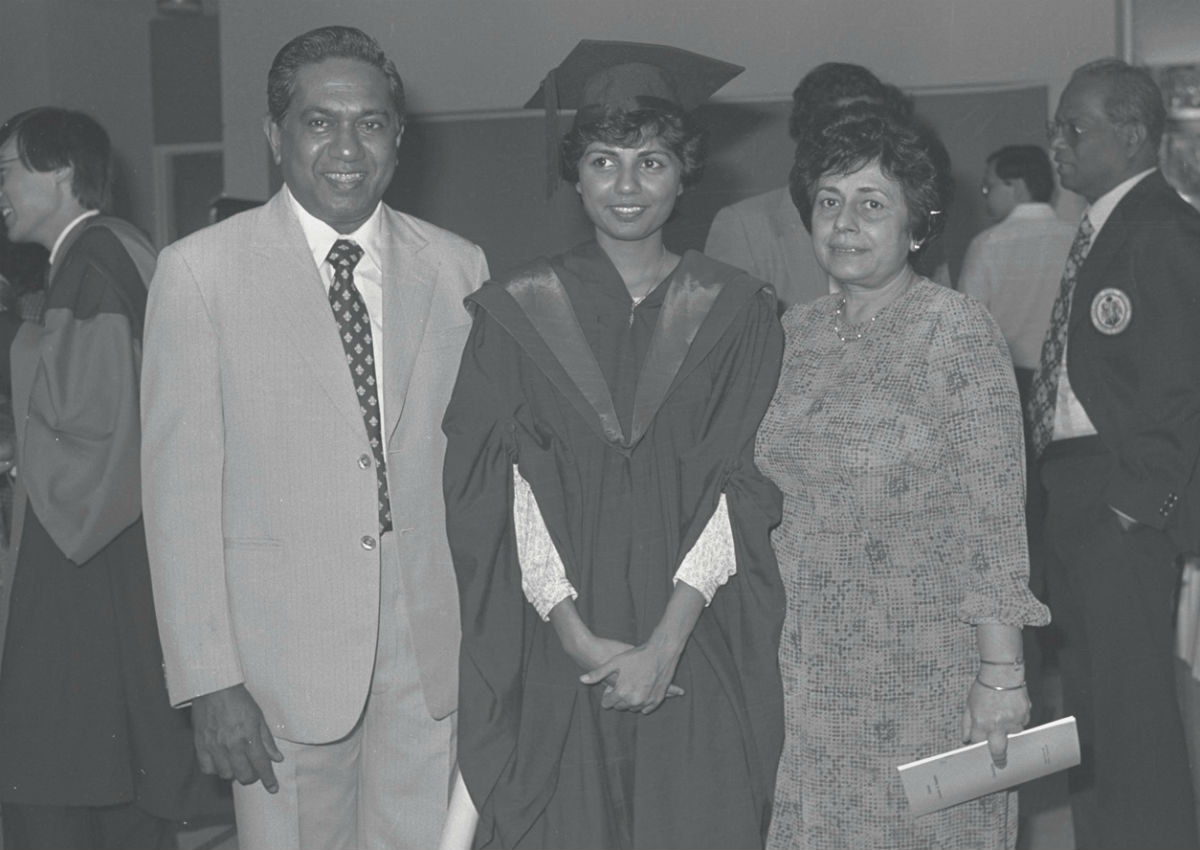I came to know Mr S R Nathan after I married his niece, Premavathy Rajamanickam, in 1975 . On the day of my wedding dinner, he came into the hotel lobby where I was waiting for my wife to join me. He greeted me, smiled and said, “Your tie needs to be adjusted. Let me do that for you.” He rectified my tangled knot and saved me from much embarrassment.
That was my first meeting with the man whom his colleagues and friends affectionately called “S R” and his younger relatives respectfully addressed as “Uncle Nathan” or “Mama” (“uncle” in Tamil). Despite his active public life, Uncle Nathan was very much a family man. He never missed any family functions. He would go to a simple birthday celebration, a small family dinner or even an ordinary religious ceremony at any one of our relatives’ homes. Many a time, when he had other competing engagements (which was normally the case), he would say, “I will come, but I’ll be late”.
We always knew that he would turn up and made sure that the dishes that he liked most were kept aside. He would cheerfully enjoy the supper when he joined us, never looking tired or worn. His legendary love of good cuisine continued even when he was taken ill and admitted to the hospital.
When he became president, he told his relatives to visit and treat him and his family as if nothing had changed. There was no need for formality and prior appointment. Besides our regular visits to his home, we continued having breakfast on every Deepavali day with him, Mrs Nathan (Aunty) and their close- knit family. On one occasion we had invited him to a family dinner at Clifford Pier. When he arrived, he walked straight to the end of the wharf and stood staring at the sea. “You know, Rama,” he said , “When I was 16, I took a boat to Muar from here, at this very spot, and did not return to Singapore until several years later.” He was referring to that sad part of his life when he ran away from home.
His devotion to his family and siblings was obvious. Once when he was visiting Australia on official business, he was informed that his daughter was ill. He flew back immediately. He also admired and liked my mother-in-law (his sister) very much. He bought his house along the same road where she lived – Ceylon Road – to be near her.
When she unexpectedly died, he frequently visited his brother-in-law late at night, just to keep him company and to help him get over the loss of his wife. In a way, he too was grieving over his beloved sister’s death. He always showed great interest in and affection for younger relatives, especially his grand nephews and nieces. When they were abroad studying, he wrote to them and made a special effort to meet them for dinner or lunch whenever he was visiting the city where they were studying.
At the mid-point of my career, I was thinking of changing jobs and I applied for various appointments. At one interview, I was surprised to see Uncle Nathan on the interview panel . The chairman of the panel asked most of the questions. Uncle Nathan just observed and sat quietly. That evening he rang me. “Rama”, he said, “I told the panel members that you are my nephew and that I would not participate in any decision relating to your application and appointment. Good luck.” Later on I received a note from the chairman of the panel expressing regret that my application was unsuccessful.
On another occasion, Uncle Nathan reprimanded me gently when I did not attend a National Day Parade. “Rama,” he said sternly and firmly, “the invitation was sent to you because of your appointment as a senior officer of the National Library. It was not a personal invitation and you should have represented the National Library instead of disregarding it”.

There was one incident which showed his eye for detail and concern for his colleagues. Uncle Nathan knew my then boss, the director of the National Library, Mrs Hedwig Anuar. One day, he called and said, “Hedwig, a full-grown shoot is sprouting on the outside wall of the library facing Fort Canning Road. The PM (Mr Lee Kuan Yew, our founding Prime Minister) uses this way (Fort Canning Road) when he goes to the Istana and he is likely to notice the shoot and call you.” Mrs Anuar got the message. She immediately directed me to have the shoot removed and the place cleaned up.

This article was first published on August 27, 2016.
Get a copy of The Straits Times or go to straitstimes.com for more stories.













































































































































